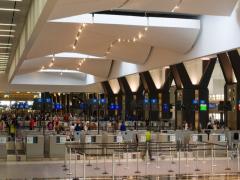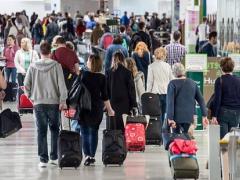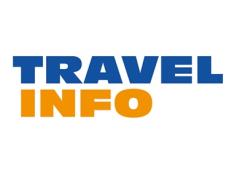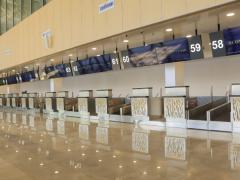TRAVEL agents are
bypassing tour
operators and heading
online to source cheaper
hotel bookings.
“I do 80% of my bookings
online now,” says Stuart
Goodall, owner of Travel
15. He says there is
sometimes thousands of
rands’ difference between
a hotel price given by an SA
operator and the price that
can be accessed using an
online search engine.
“Let’s say the operator
is offering the booking
for R12 000 and you can
access it online for
R7 000, you can offer it
to the clients for R9 000
and still earn a R2 000
service fee.”
“I’ve switched a lot of
business away from the
GDS and tour operators
to Expedia,” agrees David
Pegg, md of Sure Viva
Travels, adding that Expedia
pays agents commission
but also allows them to
accumulate points that they
can then use to discount
their customers’ rates.
“I certainly always book
what’s best for my clients
and this often requires
booking directly online
for hotels,” says Travel
Counsellor, Debbie Beckett.
“Every hotel I book is
cheaper directly with the
hotel than on agent booking
tools and not just by 10%
but by over 30% in most
cases. It seems that the
out-of-country operator
gets 10% commission, the
local operator gets 10%
commission and then we
get 10% commission. The
price knock-on effect for the
client is huge.”
She says for more
experienced consultants,
who know what they want
and can package it all
together themselves, the
operator has become
redundant.
Md of Club Travel, Wally
Gaynor, says it still has
a lot of business with
local operators when it
comes to hotel bookings.
“However, most of our
bookings are done online
with our overseas partners/
aggregators.” He says
Club Travel often finds that
local operators are making
use of the same overseas
partner but adding on their
own mark-up. As such, it
makes sense for the agency
to cut out the middleman,
access the cheaper rate
and add on its own service
fee, making more money in
the long run.
Stuart says one of the
reasons many consultants
are going online is stiff
competition. “Agents are
trying to compete with
one another to find the
cheapest deal.” He says
it’s not only online search
engines but hotel websites
as well. “Some hotel
websites even guarantee
that you can find their best
rate online.”
Do relationships rule?
Stuart thinks the trend is
problematic for operators,
and says the argument in
the past has always been
that it is preferable to deal
with an operator because
they are there to assist
when things go wrong.
“However, search engines
like Expedia and Booking.
com have 24-hour helplines
to assist in exactly these
situations.”
However, John Ridler,
PR and media manager
of Thompsons Holidays,
argues that there are
problems agents can
encounter that a 24-hour
helpline can’t necessarily
fix. “There are snags, which
include misrepresentation
of the location, false
representation of services
and false picture of the
hotel. Via the Internet,
agents have little recourse
if the property does not
live up to its promise or if
travellers have to change
their itinerary at the last
minute.”
Stuart thinks the
impact on operators will
depend greatly on which
destinations they package.
“Operators selling the
Indian Ocean islands are
thriving because they are
still able to negotiate great
bulk rates.”
The package is where the
operator can still win, says
Debbie. “With the lower
negotiated airfares, they
can come in cheaper than
the Internet and everyone
gets commission. However,
with simply a basic hotel
booking in London or
New York, the Internet
or online agent booking
engines are the way to
go. Unless operators can
negotiate exclusive deals
with hotel chains, I do see
them losing a big chunk of
agents’ business.”
Cheap rates drive agents online
Comments | 0












